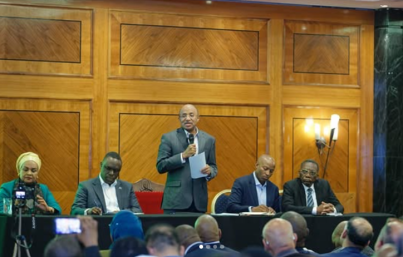Agriculture
There are significant opportunities across a range of agricultural sub-sectors – particularly large-scale commercial farming of sugarcane, rice, wheat, coffee, tea, sunflower, pulses, floriculture, cotton, sisal, grape, simsim and maize. Tanzania has 44 million hectares of arable land with an estimated 29.4 million hectares suitable for irrigation.
There is a key focus on sugarcane farming and sugar production – Tanzania has a sugar demand gap of around 220,000 tonnes, which is currently being met through imports.
The edible oils industry is also a key focus area, and investment is required in large scale farming of oil seeds, establishment of oil seeds processing facilities and establishment of refineries.
Airports and seaports
There is investment potential in sustainable infrastructure that can efficiently manage cargo and passengers through airports and seaports.
There are key target areas for investment in maritime transportation:
- A comprehensive passenger hub at Malindi that integrates ferry and marina services
- Revitalising Forodhani Waterfront to leverage linkages with tourism developmen
- Reliable and efficient marine transportation facilities in Pemba, including improving cargo and passenger terminals in Mkoani and Wete, for better marine connectivity between islands
Energy
Tanzania has diverse energy sources including biomass, natural gas, hydro, coal, geothermal, solar and wind power and uranium, much of which is untapped. Therefore, there are many opportunities to invest in these energy sources, particularly in renewable energy development such as geothermal and biofuels, for example, ethanol from sugar and biodiesel from palm oil and jatropha.
Mining
Tanzania has unique mineral deposits, including coal, copper, diamonds, gold, nickel, silver, uranium, and Tanzanite gemstone.
There are key target areas for investment in the mining industry:
- Processing of precious metals and gemstones
- Establishing a caustic soda refinery plant in Engaruka
- Production of iron ore and steel in Liganga
- Processing of nickel in Kabanga
- Extracting uranium in Mkuju
- Investment in minerals smelters
Oil and Gas
A key focus area is in sustainable and inclusive Oil and Gas exploration.
An additional investment target is the establishment of processing plants and industries to produce refined mineral oil.
Real Estate
Following the relocation of Government Head Quarters and functions from Dar Es Salaam to Dodoma, there are abundant investment opportunities in resident houses, hotels and office accommodation in Dodoma.
Across the country, there is increased demand to develop and manage a range of different real estate, such as houses, offices, entertainment facilities, hotels.
There is a focus on regenerating urban areas, whilst also using eco-friendly, sustainable and innovative construction practices, to reduce environmental destruction.


